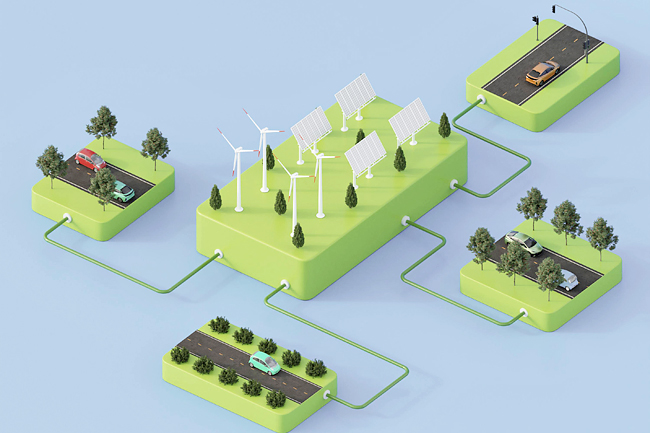Aqilah Rahman
Green technology is defined as the technology used to produce smaller carbon footprints. Despite its growth and increasing economic opportunities, developing countries could miss out as the tech gap between developing and developed countries widens, according to the Technology and Innovation Report 2023 by the United Nations Conference on Trade and Development (UNCTAD).
The report covers 17 frontier and green technologies, ranging from artificial intelligence (AI) and the Internet of Things (IoT) to green hydrogen and electric vehicles. By the end of the decade, the combined technology is expected to grow from a market value of USD1.5 trillion in 2020 to over USD9.5 trillion by 2030.
Developed countries make the most of the opportunities while developing economies lag and risk missing the technological wave. “We are at the beginning of a technological revolution based on green technologies,” said UNCTAD Secretary-General Rebeca Grynspan.
“This new wave of technological change will have a formidable impact on the global economy.
Developing countries must capture more of the value being created in this technological revolution to grow their economies.”
From 2018 to 2021, total exports of green technologies from developed countries jumped from around USD60 billion to over USD156 billion – more than a twofold increase. Meanwhile, exports from developing nations rose from USD57 billion to only about USD75 billion within the same period.

The report includes a frontier technology readiness index that shows that very few developing countries have the capacities needed to take advantage of frontier technologies such as blockchain, drones, gene editing, nanotechnology and solar power.
A total of 166 countries are ranked based on information and communications technology, skills, research and development, industrial capacity and finance indicators.
High-income economies dominate the ranking, particularly the United States, Sweden, Singapore, Switzerland and the Netherlands.
The second quarter of the list includes emerging economies – notably, Brazil ranked at 40, China at 35, India at 46, Russian at 31 and South Africa at 56.
The report also highlights that several economies in Asia perform better than expected according to their gross domestic product per capita due to having made important policies.
India is ranked as the greatest overperformer, ranking at 67 positions better than expected, followed by the Philippines (54 positions better) and Vietnam (44 better).
Countries in Latin America, the Caribbean and sub-Saharan Africa are the least ready to harness frontier technologies and are at risk of missing current technological opportunities.
All 17 technologies covered in the report are at the frontiers of change, said the report, but some are more mature than others based on the patents and publications.
AI is the most mature technology based on the years in which patents were first sought and the period over which the original patents were subsequently cited.
Most patents for AI technology were applied for in 2014, with an average citation date of 2005. In comparison, IoT is considered immature, with an average patent application year of 2017 and a citation date of 2016.
The report said that the more mature technologies might seem simpler and more affordable for developing countries as it requires less research and development (R&D) such as biomass and solar photovoltaic.
The report called on governments to use green tech opportunities by aligning environment and industrial policies, investing in more complex and greener sectors, and building consumer demand by providing incentives.
Other priority areas highlighted in the report include investing in R&D, raising awareness of green technologies, and developing digital infrastructure and skills.
The report also called for international collaboration for more sustainable production. Without the international community’s support, developing countries lacking technological capability cannot seize green opportunities.
Global trade conditions play a large part and should permit developing countries to protect infant green industries through tariffs, subsidies and public procurement.
In addition, tighter intellectual property rights (IPR) make it difficult for new producers to break. Hence the report calls for the IPR system to be reformed.
The report also called for shifting research from the national to the multinational-level; regional and South-South cooperation, and a multilateral fund to stimulate innovations that could respond to global challenges.




